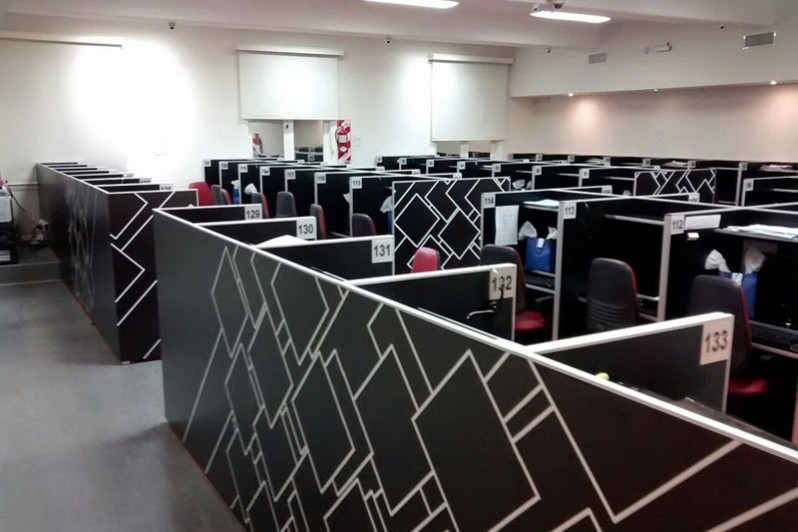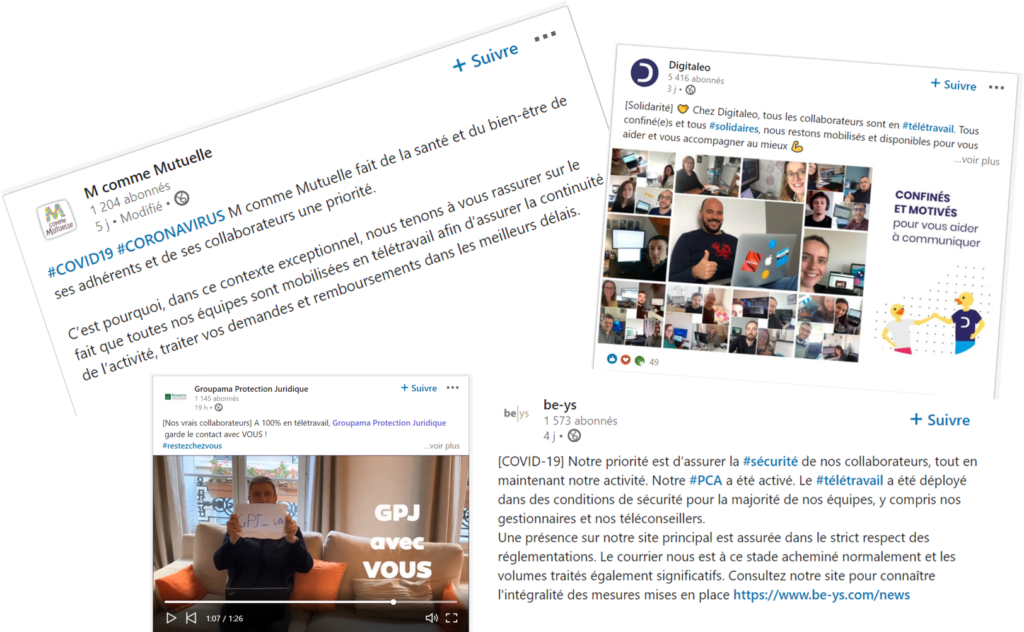
Customer Relations reveals its importance in crisis situations. Customer Relations stakeholders have worked behind the scenes to ensure continuity of service during the lockdown.
Looking back at this unprecedented period.
- Customer Relations have long been considered a second string activity in business.
Perceived as a costly but necessary activity in the face of the “obligation to provide after-sales service” and the “need to take customer complaints into account”, and seen as totally disconnected from the venerated act of selling, Customer Relations has too often been sacrificed on the altar of profitability. This has led to employees packed into small spaces, poorly-paid advisers, outdated tools, outsourcing and offshoring, with outcomes for the customer that leave much to be desired.
- Customer Relations businesses, in the broadest sense of the term, have reshaped the sector, and little by little, Customer Relations jobs have proven their true worth.
The AFRC was created to promote and improve the image of these jobs, and has carried out extensive groundwork to have the value of this sector recognized, introducing certifications, labels, training courses and standards, as well as awards for the most virtuous initiatives. Other professional organizations and trade unions have followed suit across Europe: the AMARC in France, the CCV in Germany, the CMI and the CMMC in Italy, the AEERC in Spain, (I’m sure I’ve left some out, and I apologize in advance).
Trade shows, events, awards and competitions are cropping up everywhere. These events showcase the skills and bold thinking of many teams who have made customers their key priority and the vision of businesses that have decided to invest in this area.
- Customer Experience has become an important issue.
Many businesses have even appointed a Chief Customer Officer to create customer strategy. Businesses have realized that customer experience can be a powerful driver of performance. A Forrester study found a correlation between customer experience and business performance.
- And then Covid-19 suddenly burst onto the scene earlier this year.
France went into lockdown on 16 March, and just like that most of the economy was paralyzed. Society as a whole has rightly recognized the usefulness of many overlooked jobs that were in fact “on the front lines” during the first weeks of the pandemic: healthcare workers, delivery drivers, grocery store employees, garbage collectors, etc.
However, despite this unprecedented crisis, businesses did not all abruptly cut off their relations with customers. Shops, chain stores, bank branches, post offices and train stations closed their doors, some basically overnight, but the consumers still needed to be able to talk to a person to answer their questions. The Customer Relations sector reveals its importance. Often this is the only communication channel left when sales representatives are furloughed. It is impossible to suspend customer interactions: the business relationship still exists and contracts are running, pandemic or not.
Today, as people are once again able to enjoy sitting at sunny sidewalk cafes, we must tip our hats to all the Customer Relations teams who were able to adapt in record time to provide continuity of service and handle ongoing customer interactions during the lockdown. This was no easy task: the IT teams provided the agents with the tools to work from home without jeopardizing the company’s IT security, the operational teams adapted their processes and management methods, modified the schedules, kept one eye on the evolution of volumes and the other on the quality of service, modified the distribution of channels, sometimes developed digital channels (chat, new FAQs and self-service), Human Resources amended the employment contracts and complied as best they could with the directives concerning working from home (not always easy to do on such short notice). Among our users, some social landlords even proactively set up outbound call campaigns to reach out to the most vulnerable populations, just to see how they were doing.
Above all, the agents did an amazing job of adapting, in order to maintain the relationships with customers. Whatever the sector of activity, BtoC or BtoB, these unseen workers have continued to respond to millions of requests, take/cancel orders, provide support activities and solve technical problems, while coping with different work setups, the inconveniences of working at home, personal issues, not to mention sometimes erratic internet access.
It will be exciting to see what changes occur in the coming months for these professions and organizations: Acceptance of teleworking in a sector where this seemed unthinkable just a few weeks ago? Development of homesourcing? New management methods and KPIs? Acceleration of digital technology or simplification of tools? Emergence of technical innovations?
- What lasting changes will take place in these organizations?
Will consumers’ perception of Customer Relations change after the unprecedented experience of the past few weeks? Nothing is less certain, since exceptional service is often taken for granted.
Operating behind the scenes, but with perseverance and dedication, less appreciated than the people termed “front line workers”, Customer Relations agents nonetheless proved their worth and did more than their share to help drive the French economy. Well done to them!
Customer Relations operates behind the scenes. “And yet it moves…”
* The Italian expression: E pur si muove or Eppur si muove [epˈpur si ˈmwɔːve]) is a phrase attributed to the Italian mathematician, physicist and philosopher “And yet it moves” or “Albeit it does move” Galileo Galilei (1564-1642), in 1633 after being forced to recant his claims that the Earth moves around the Sun, rather than the converse. In this context, the implication of the phrase is: despite his recantation, the Church’s proclamations to the contrary, or any other conviction or doctrine of men, the Earth does, in fact, move around the Sun, and not vice versa. (Source: Wikipedia.org)
#customerrelations #customerexperience #contactcenter #resilience




